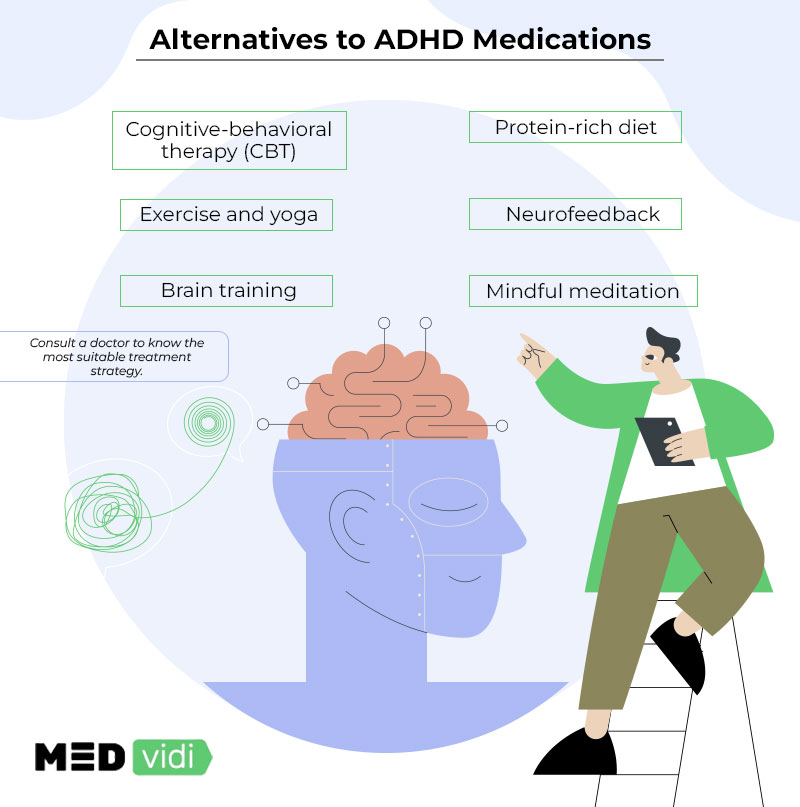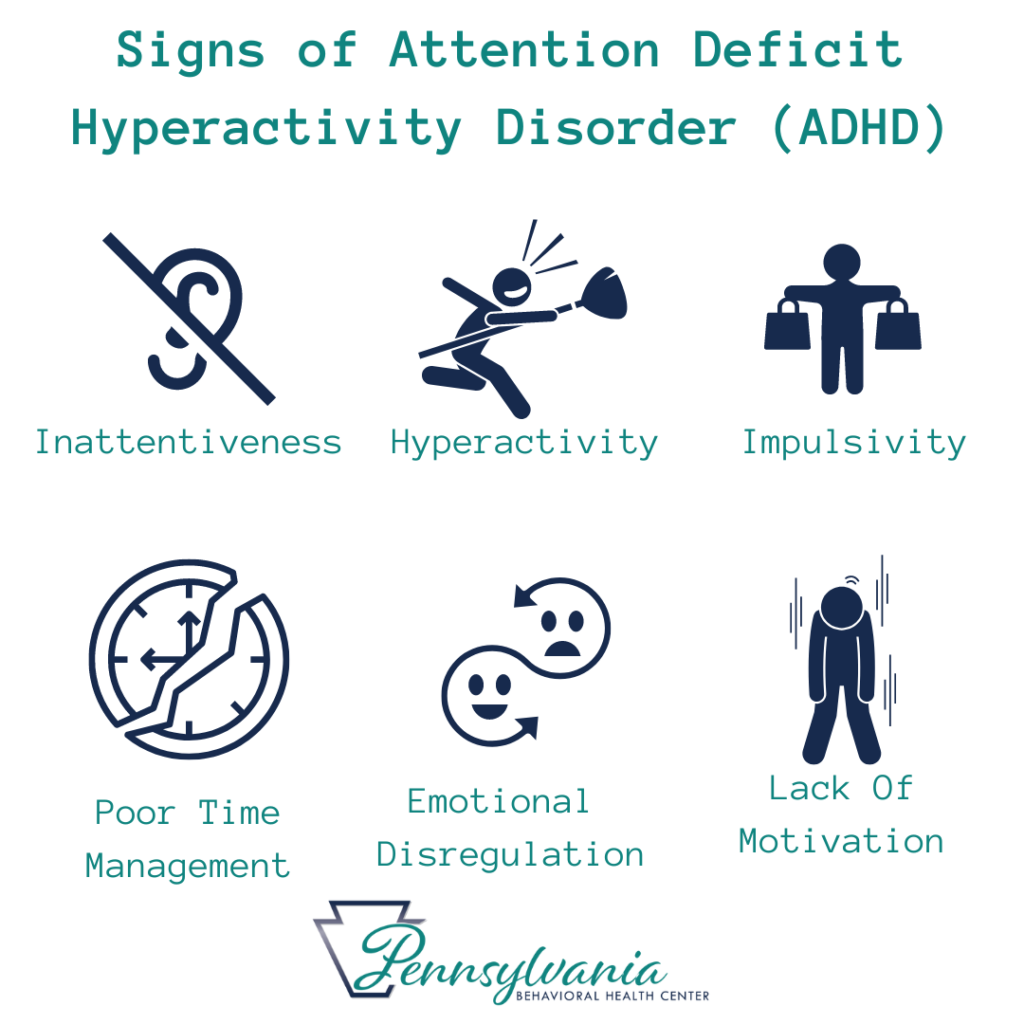Your Guide to Locating the Right ADHD Treatment for Long-term Outcomes
Browsing the complexities of ADHD treatment requires a nuanced understanding of both the disorder and the myriad options available for effective administration. It is crucial to recognize that what works for one individual may not necessarily generate the same outcomes for another.
Recognizing ADHD and Its Influence

In grownups, ADHD can cause difficulties in workplace settings, impacting efficiency, time management, and social connections. Frequently, undiagnosed or improperly managed ADHD can add to co-occurring mental health and wellness concerns, such as anxiousness and depression, further complicating a person's overall well-being.
The social understanding of ADHD can differ, causing stigma and misunderstanding, which might impede people from seeking aid. As understanding grows, it is necessary to promote an environment that advertises understanding and support for those impacted by ADHD, emphasizing the need for precise diagnosis and customized methods to alleviate its influence on day-to-day life.
Overview of Therapy Options
A detailed approach to treating ADHD includes a selection of choices customized to the individual's distinct demands. These choices can generally be categorized into behavior treatments, psychoeducation, and lifestyle adjustments, alongside medicinal therapies that may be checked out later on.
Behavior treatments, such as cognitive-behavioral treatment (CBT), focus on customizing details behaviors and developing coping methods to take care of signs and symptoms effectively. Psychoeducation plays a critical role in equipping both people and their family members by giving information regarding ADHD, its obstacles, and efficient approaches for support.
Lifestyle alterations can substantially influence ADHD management. Regular physical task, a well balanced diet plan, and sufficient sleep add to overall well-being and symptom control. Mindfulness practices and relaxation techniques can also enhance emphasis and lower impulsivity.
Support system and household therapy can cultivate a feeling of area and understanding, assisting people really feel less isolated in their experiences. Each treatment alternative need to be considered together with the individual's choices and situations, ensuring an all natural method that promotes Check Out Your URL lasting success. Inevitably, the goal is to create a tailored treatment plan that addresses the specific challenges related to ADHD while improving total quality of life.
Drug: Pros and Disadvantages
Medicine plays a pivotal duty in the treatment of ADHD, with numerous alternatives offered that can substantially reduce signs and symptoms for several individuals. Stimulants, such as methylphenidate and amphetamines, are commonly suggested and have revealed performance in boosting focus, lowering impulsivity, and enhancing total habits. These drugs function by enhancing dopamine and norepinephrine degrees in the brain, which are commonly dysregulated in those with ADHD.
However, the usage of drug is not without its obstacles. Some individuals might experience negative effects, consisting of sleeping disorders, lowered appetite, or raised anxiety. Discovering the appropriate dosage can be an experimental process, needing close monitoring by health care specialists. In addition, not all clients react to stimulant medications, leading some to explore non-stimulant choices, which may have a delayed beginning of action or different negative effects.
It is vital for individuals and their family members to evaluate these advantages and disadvantages carefully. Balancing the benefits of signs and symptom monitoring against potential adverse effects is vital for attaining optimum treatment end results. Cooperation with doctor can facilitate informed choices, guaranteeing that medicine is part of an extensive ADHD management plan.
Behavior Modification Strategies

One typically utilized technique is Cognitive Behavioral Therapy (CBT), which aids individuals determine and alter adverse thought patterns that add to ADHD-related challenges. Therapist for ADHD. With CBT, customers discover to establish sensible objectives, take care of time properly, and develop business systems
An additional effective strategy is Moms and dad Administration Training (PMT), which educates moms and dads on exactly how to reinforce positive habits and minimize unfavorable ones via constant technique and communication strategies. This strategy promotes a helpful home environment that encourages behavior enhancements.
Social skills training is also integral, aiding people with ADHD navigate social interactions much more successfully. Role-playing and modeling suitable behaviors can boost social skills and decrease anxiety in social scenarios.
Way Of Living Modifications for Better Management
How can way of living changes dramatically boost the administration of ADHD signs and symptoms? Executing strategic way of life alterations can result in significant enhancements in emphasis, organization, and emotional law for individuals with ADHD.
First of all, establishing an organized everyday routine assists in creating predictability, which can relieve sensations of overwhelm. Constant timetables for meals, life christian counseling research study, and rest can boost daily functioning.
Incorporating regular exercise is additionally essential, as exercise has actually been revealed to boost dopamine levels, enhancing focus and inspiration (Therapist for ADHD). Going for at the very least 30 minutes of moderate workout most days can be advantageous
Nutrition plays an essential duty too. A well balanced diet regimen abundant in omega-3 fats, entire grains, and protein can support cognitive feature. Restricting refined sugars and caffeine might lower signs and symptoms, as these can lead to power crashes and irritation.
Final Thought
In conclusion, locating the ideal ADHD treatment necessitates a diverse method that considers private needs and choices. Partnership with healthcare experts and open communication with assistance networks are vital components in navigating the intricacies of ADHD administration, ultimately leading to long-term results and boosted quality of life.